John Janaro's Blog, page 161
January 28, 2019
The Rhododendron: It Stays Green and it Never Gives Up
RHODODENDRON, I salute you! You endure everything.
You are gobbed by snow, encrusted with ice, tossed by winds and wilted by bitter cold all through the Winter. But with a little sunshine you perk right back up and spread your ever-GREEN leaves in triumph.
You are tough, but you have beautiful flowers. You make me smile!
You are gobbed by snow, encrusted with ice, tossed by winds and wilted by bitter cold all through the Winter. But with a little sunshine you perk right back up and spread your ever-GREEN leaves in triumph.
You are tough, but you have beautiful flowers. You make me smile!
Published on January 28, 2019 17:38
January 27, 2019
World Youth Day 2019: Far Away, Yet Close to Me

This past week, young people from all over the world met with Pope Francis for the "World Youth Day" festival in Panama (Jornada Mundial de la Juventud in Spanish, hence the "JMJ" logo). I was able to follow the progress of the events, not only from news reports, television, and live streaming, but also in a more particular way through the Instagram Stories posted by people I know who attended the events.
Those brief personal "reports" from friends in Panama were precious things. They were new channels through which the grace of the "JMJ" extended itself to distant places, including my "place" thousands of miles away physically but close in the heart and soul.
It also meant even more to me to follow this year's JMJ events, since they coincided with the twentieth anniversary of my first pilgrimage to Mexico and my first visit to Latin America in January of 1999. The occasion of that trip was also a papal visit of Saint John Paul II. Although it was not World Youth Day, John Paul's itinerary included two large public events that I was able to attend. The spirit of Panama this past week, with its distinctive Hispanic openheartedness and fervor, brought back memories of those days.
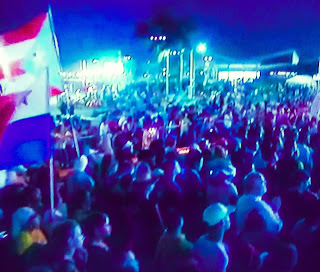 Youth festival pilgrims, streamed via Vatican Media.And then, of course, I will always love the WYD gatherings because of my own experience of the festival (again with John Paul II, who founded it) all the way back in 1993. I know how great the experience can be for young people, and the grace that works so deeply in these days.
Youth festival pilgrims, streamed via Vatican Media.And then, of course, I will always love the WYD gatherings because of my own experience of the festival (again with John Paul II, who founded it) all the way back in 1993. I know how great the experience can be for young people, and the grace that works so deeply in these days.Finally, the joy was more personal for me because of the presence and involvement of a number of my young friends who are dedicated to "Música Católica"—an emerging movement of outstanding Hispanic Catholic Christian artists who make contemporary Praise and Worship music (very beautiful, stirring, prayerful music) for appropriate Catholic settings. Through Instagram stories and messages, I was able to communicate with some of them during the week, learn of their experiences, and offer prayer and encouragement. It was a very special time of living the mysterious unity we share as brothers and sisters and "members of Christ's body," a unity that transcends nations, cultures, and physical distance even as it enriches them and enables us to share them with mutual appreciation.
To my beautiful friends from Argentina, Mexico, Dominican Republic, and many other places in Latin America: "¡Muchos Gracias!" I am learning to love the Spanish language (and to understand more, with less help from Google); and I am also learning to love (though I can't understand it
Published on January 27, 2019 16:18
January 26, 2019
The Crisis of the New Epoch: Power Without Wisdom
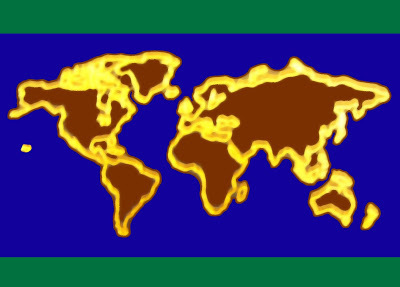 We are living through a large, complex social upheaval that has been taking place over the course of the last two centuries. This upheaval is of historic proportions, and involves all the factors (good and bad) that are weaving together the histories of diverse peoples into the first "global epoch." One of the driving and defining forces of this still-emerging new epoch has been the dazzling, unimaginable progress of mass technology—the human capacity to manipulate material realities in nearly every facet of life.
We are living through a large, complex social upheaval that has been taking place over the course of the last two centuries. This upheaval is of historic proportions, and involves all the factors (good and bad) that are weaving together the histories of diverse peoples into the first "global epoch." One of the driving and defining forces of this still-emerging new epoch has been the dazzling, unimaginable progress of mass technology—the human capacity to manipulate material realities in nearly every facet of life.This gigantic emergence and vast dissemination of human power, however, has not found a corresponding deepening of the wisdom necessary to judge how it can be used in ways that serve the whole good proper to human persons. The vocation of the person in the world has a terrestrial dimension (to contribute to caring for creation and building up history) and at the same time and inseparably an ultimate dimension, to journey through this world with a responsibility and tenderness for others and for all things in relation to a transcendent destiny.
In these tumultuous times, however, we have access to immense powers (and are caught up in the use of those powers, as individuals and as a society) but we don't have the necessary wisdom to know what kind of activity is worth doing. We need a deeper wisdom that perceives the dignity of human persons and the central purposes of human life—with its fundamental orientation toward transcendence, its responsibility toward present human needs and the heritage of future generations, and its task of intelligent and attentive stewardship over the natural environment.
Without wisdom, our powers have no measure. We enlarge the "extensions" of our physical capabilities in ways that are grandiose, but that may also be reckless. If we don't know why life is worth living, or are not at least seriously committed to engage the distinctive value of the human person and the full range of goodness in the created world, we degenerate to inconsiderate motivations rooted in selfishness, tribalism, greed, and envy.
We cannot deny that we live in a world of many wonderful possibilities and many tools of unparalleled utility. At the same time, every aspect of human life bears marks of accelerating complexity, confusion, and affliction. To cite the most obvious example: While human beings have never had such material wealth as some of us have today, other human beings suffer from unimaginable levels of poverty and degradation. Efforts to resolve this inequity by changes in the structures of power or by empiricist economic schemes may appear to "work," but they usually generate new (and even worse) problems.
This is inevitable in a globally interconnected world insofar as we try to "govern" power by the exclusive exaltation of technique to the neglect of an integrally humanistic and genuinely ecological wisdom. When we lack wisdom—when we fail to engage reality in all its factors and recognize the full scope of the good—it's not surprising that we don't know how to focus our power to determine the ways of constructive activity (or restraint) that are called for in real circumstances, or gage the importance of the consequences of what we do. Power without wisdom leads, inexorably, to violence.
Many people have begun to realize that we need this wisdom, and are searching for it in various ways. But so many of us are intoxicated by our enormous powers and captivated by the illusion that they bestow on us unrestrained and easily acquired "freedom." We are willing to allow them to rage wildly, serving neither the temporal good of this world nor our destiny of eternal life with God. We thus reduce ourselves and others to objects in the vast field of material things we control (or try to control), we struggle to manipulate one another, we fight as rivals for power as self-contained individuals (or as members of exclusivistic "tribes") rather than living as persons-in-communion, or we attach ourselves to whatever spectacles of power or ingenious schemes captivate our fancy.
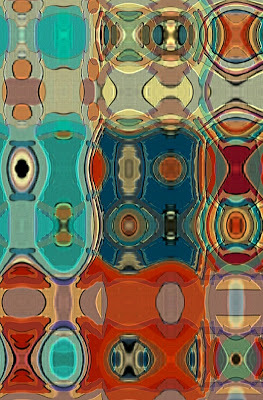 We lack wisdom and we don't seek wisdom. We are fools. Gigantic, titanic fools.
We lack wisdom and we don't seek wisdom. We are fools. Gigantic, titanic fools.This is not a pretty picture of the human race. Certainly, it's only part of the picture. After more than a half of a century of life experience, I have lost most of my naive optimism. But I have also learned not to underestimate human resilience. Humans are both fragile and tough. We are full of surprises.
Here, however, I am stepping back from my usual method of seeking out and highlighting truth, goodness, and beauty wherever I find it—however small, tenuous, or submerged in ambivalence it may be. Here I am outlining the shadows rather than the light. (The "shadows" generally have more bearing on my strange poetry rather than my usual efforts to write encouraging prose.)
But I cannot ignore the enormous danger that we humans face if we do not rise to the occasion and affirm the fullness of our humanity in these times, in the midst of the furious emergence of the new epoch.
I should say that we will only "rise to the occasion" if we permit ourselves to be lifted up and opened within the depths of our spirit, the core of our person, by the gift of a Wisdom greater than our own.
This is where I place my hope.
Outside of this hope, we can talk about our "values" and about the importance of "spiritual things," but practically speaking we live like materialists, and we are becoming a materialist society on an increasingly monstrous scale. We measure real human worth by the quantity of power a person or group exercises over material things, a power that grows on the strength of technological cleverness and pours into the bottomless hole of human cupidity, aimless curiosity, and the endless cravings of covetousness.
Corresponding to our insatiable hunger for things is the demand for "open possibilities." This entails an illusory flexibility which we think allows us to toy with and then escape from permanent commitments. We fail to see how this attitude distroys our personal lives and hurts everyone around us, how it fragments society, how it impoverishes future generations.
What is the use of an ideal of freedom that is afraid to realize itself in the commitment of the person, as person, to real life and real love? Aimless "freedom" is bent toward disconnection: we are led to believe that "freedom" means being free to grow continually and exponentially in material power, possessions, comfort, and security; free to accumulate unencumbered experiences; free of commitments or a sense of responsibility for the future; free of the demands that others make of us in real human relationships; free to do whatever we want, to be autonomous, to use other humans in temporary combinations and then return to our own radical isolation, to be unconcerned, unbounded, self-defined, alone...
Where will such "freedom" lead us? It will make of our poor selves a desolate landscape where the winds of fear will blow relentlessly and our distractions will increasingly elude us and eventually flee, leaving in their wake an unmasked, inescapable, terrible loneliness.
I have lived long enough to see the trajectory of this false freedom, how it leads to sadness, to the monstrous poverty of the person surrounded by material riches. I have recognized again and again in myself this inclination toward "disconnection" that seems to fill the atmosphere of wealthy societies in our time. It has caused incalculable damage that has hindered the human maturity of whole generations of people—with significant variations, of course, for different persons depending on circumstances and their own connivance in this mentality, but in a way that has left everyone "bruised." The First World's "poverty of loneliness" has not only exacerbated perennial human forms of violence within human relationships; it has opened new dimensions and new contexts for the crippling psychological experience of trauma (a topic that deserves further consideration in another essay).
In any case, we who have been wounded cannot fill the hole in ourselves, the emptiness of our uncommitted lives, with pseudo-connections forged by the same logic of power that has isolated us. We are easily manipulated by manufactured "identities," inflamed causes and angry partisanship, or this phenomenon I have called "tribalism" which is a kind of social alchemy where our common fears, interests, lusts, and desire for vengeance are melded together by demagoguery into an irrational "blood bond." These tribal collectives grow, thrive, defend themselves, and make war according to their own bizarre common imaginings and their technologically enhanced "instincts."
We have seen these things happen before in the turmoil of this emerging epoch. We don't want to see them re-emerge in full force on a global scale. In our times, we must be determined to be human persons, to respect and honor one another, to take the risks of love and commitment, of freedom and responsibility, and to seek wisdom.
Published on January 26, 2019 20:57
January 25, 2019
Twenty Years Ago: A Beautiful Experience
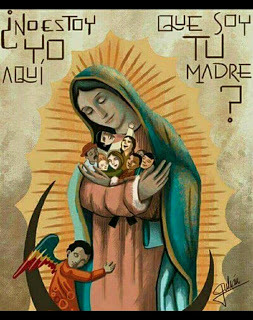 TODAY, January 25, 2019, is the 20th anniversary of my first pilgrimage to the Basilica of Our Lady of Guadalupe. It coincided with Saint John Paul II's fourth visit to Mexico, and the publication of the synodal document Ecclesia in America.
TODAY, January 25, 2019, is the 20th anniversary of my first pilgrimage to the Basilica of Our Lady of Guadalupe. It coincided with Saint John Paul II's fourth visit to Mexico, and the publication of the synodal document Ecclesia in America.⭐It was one of the most beautiful experiences I have ever had.⭐
It was an absolutely CRAZY day, but with a gratuitous peace at the heart of it all.❤️ I'll try to write a longer blog post, maybe tell the whole story... soon.
Today I am full of gratitude to Our Merciful Mother.
Published on January 25, 2019 20:33
January 24, 2019
Saint Francis de Sales: "Why Do You Worry?"
Today is the Feast of Saint Francis de Sales, Bishop and Doctor of the Church.
You gotta love this man.

You gotta love this man.

Published on January 24, 2019 18:58
January 22, 2019
Day of Prayer for Unborn Children, their Mothers, & Our Society
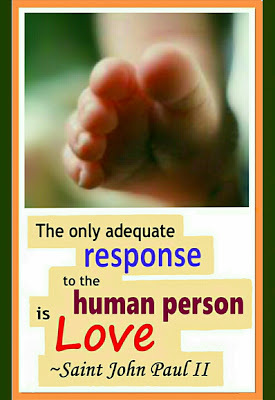 The Catholic Church in the United States of America marks January 22 on the liturgical calendar as a "Day of Prayer and Penance for Legal Protection of the Unborn." This corresponds to the 46th anniversary of the Supreme Court decision that effectively struck down all laws against abortion in the USA. This removal of legal protection, or even the possibility of establishing laws, was an act of colossal social irresponsibility.
The Catholic Church in the United States of America marks January 22 on the liturgical calendar as a "Day of Prayer and Penance for Legal Protection of the Unborn." This corresponds to the 46th anniversary of the Supreme Court decision that effectively struck down all laws against abortion in the USA. This removal of legal protection, or even the possibility of establishing laws, was an act of colossal social irresponsibility.Let us be honest to the testimony of our consciences, and call these things by their proper names, not shirking from what we know is really going on.
Abortion is the direct killing of an innocent human being, the child in the womb of his or her mother. It is an act of violence against the mother, who is severed permanently (in this world) from the person of her child. Regardless of the circumstances of his or her conception, the child is a person created by God and entrusted to another person, a woman who is given the precious, intimate, irreplaceable relationship of being mother to that child.
We should spare no effort in this society to create environments where this fundamental interpersonal relationship is supported and permitted to grow. This is a task that makes claims on families and friends, local communities, constructive institutions on various levels, and, if necessary, government assistance. This also includes incorporating (in ways permitted by circumstances and the personal safety of mother and child) the relational responsibilities of the child's father.
But this is not what we do.
Instead, we have retrenched more deeply into the malaise of social isolation, and -- in a stunning perversion of the language of personal freedom -- we absolve ourselves of responsibility, solidarity, and real compassion for the mother and her unborn child and replace it with the ideological assertion of "a woman's freedom to choose." The object of this allegedly "autonomous" (but in fact terribly lonely) choice is left dangling in our social discourse. It's an awful sign of our desire to evade the fact that we are presenting mothers with the option to have their children killed in the womb. They are "free to choose" this option; indeed it is facilitated and encouraged by our social environment. In fact, more and more, it seems that mothers facing difficulties are expected to make this choice.
And so the mothers go to the killing centers, whether burdened by great fear or psychological pressure, acting with varying degrees of reluctance and/or indifference, or deluded by a false sense of empowerment. Their choices here are irrevocable, and they have to live with them (forever...if it were not for the presence of a Greater Love, and the possibility of forgiveness).
Do we even care about these women, these mothers and their disappeared children?
Certainly. That's why some of us want legal protection for the unborn and for their mothers. Right?
In order for laws to endure in a stable manner, however, they need at least a chance of taking root in a society. What would have to change about the way we live in order for this to be possible?
I do not think that legal protection of the unborn (and the equity and compassion their mothers need) can be a lasting achievement for this society unless we all change our way of viewing our own lives and our relationships with persons, as well as our assessment of the relative purposes of material things, and our appreciation for the common good of our society.
The "normalization" of abortion has been a monstrous catastrophe. Let us remember, every abortion kills an innocent and defenseless human being made in the image of God. Presently, the "first world" is virtually unanimous in proclaiming that the freedom to choose abortion is a basic human right. Today we remember with great sorrow the role the USA has played in helping to spread this delusion.
We pray and do penance for all these things, and for our own complicity in this ugly culture of death. Legal abortion has been a catalyst in the proliferation and expansion of the death culture, but it also emerged from a long existing and broader malaise and continues as a brutal symptomatic expression of a violent society in which we all participate, dragging one another down in various ways, making war against one another in deeds, in speech, in the thoughts of our hearts. This is no way to foster a culture of life.
Reform always begins with myself. I am a selfish, sinful man. Lord, have mercy on me.
Published on January 22, 2019 20:50
January 21, 2019
Saint Agnes Day
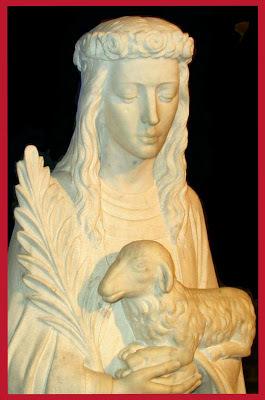 Statue at St Agnes Parish, Arlington, VirginiaToday we celebrate one of the greatest of "God's Girls," who suffered martyrdom on this day over 1700 years ago.
Statue at St Agnes Parish, Arlington, VirginiaToday we celebrate one of the greatest of "God's Girls," who suffered martyrdom on this day over 1700 years ago. Agnes of Rome (c. year 304) chose Jesus as her only love. She put Jesus first in everything, and neither the allurements nor the violence of the powers of this world could take Him away from her.
This girl and all her sisters still bring light to the depths of darkness; they bring defenseless goodness face to face with all the weapons of evil. Century after century their stories inspire us. In the most diverse places and cultures, they give themselves with burning ardor, with great and pure devotion.
All these loves that, to the eyes of this passing world, seem to end with early and brutal deaths: how is it anything more than a long series of unbearable tragedies?
Because the One they loved died to destroy death forever. He lives. They live in Him.
And so their love has not ended. Their love endures, through the years, and the centuries. They become our friends through the communion of saints, and sometimes they "find us" in the course of our own particular lives and engage us in profound and personal ways.
Thank you, dear Saint Agnes. You have always been a great friend to our family.
"What I longed for, I now see; what I hoped for, I now possess; in heaven I am espoused to Him whom on earth I loved with all my heart" (antiphon for Saint Agnes, January 21).
Published on January 21, 2019 20:31
January 19, 2019
Keeping My "Balance"...Sort Of...
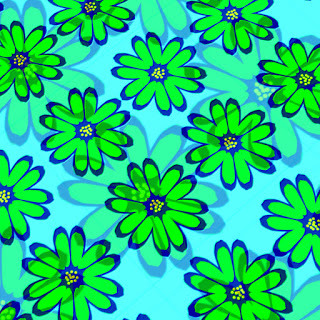 Somewhere, it's Summer!I'm trying to endure this strange weather (and my strange mind and body) by working a lot with digital art software and applications, along with a touchscreen-sensitive stylus, maybe some texts like the one below, and my own peculiar imagination.
Somewhere, it's Summer!I'm trying to endure this strange weather (and my strange mind and body) by working a lot with digital art software and applications, along with a touchscreen-sensitive stylus, maybe some texts like the one below, and my own peculiar imagination.Using brain and hands to engage in creative work helps balance out the "overthinker" in me. Sure, it's not quite the same as painting on canvas or even sketching on paper. Still, notwithstanding the technological medium, hands and fingers are very necessary for many aspects of this detailed work (with or without the stylus). And I can do it even in my bed. The "tools" are all in one "place" and are easily accessible.
It's a very scaled-down form of pictorial art, but it's a different kind of "mental exercise" than reading or writing (my primary work) and it seems to help ward off the less felicitous preoccupations that my brain can easily fall into. It uses different mental resources and a different kind of energy.
"Let the words of my mouth and the thought of my heart
find favor before you,
O Lord, my rock and my redeemer" (Psalm 19:15). .

Published on January 19, 2019 20:58
January 18, 2019
God's Love Seeks Every Human Person
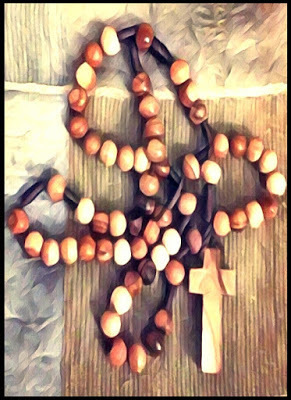 What would our lives be like if we really believed and recognized that the grace of God is at work, mysteriously, in the heart of each and every human person we meet?
What would our lives be like if we really believed and recognized that the grace of God is at work, mysteriously, in the heart of each and every human person we meet?What if we could look at each human person we meet with some sense of the way Jesus is looking at them in that moment?
We would see the world differently, and have a different attitude toward others and ourselves. We would be bolder in the ways of love.
We know it's true that the Lord is always working in hidden, inscrutable ways to open the hearts of people to receive his love, or to grow in that love.
We know that the most wretched, horrible, morally ugly, disgraceful, malicious, violent, evil human beings on this earth at this moment are loved by Jesus with an inexhaustible passion.
We know that he seeks each of them, that he is under the weight of all their horror, that he has borne it all and is in himself the source of a transforming grace that can, in the flash of a millisecond of freedom that permits it, wipe away all the guilt of every imaginable sin and engender a response of love that utterly changes the person.
Mercy does not eliminate justice, because every sin has been atoned for by Jesus. Every sin.
Never give up on Jesus!
God is in everyone’s life.
Even if the life of a person has been a disaster,even if it is destroyed by vices, drugs or anything else,God is in this person’s life.You can, you must try to seek Godin every human life.Although the life of a personis a land full of thorns and weeds,there is always a spacein which the good seed can grow.You have to trust God.
~Pope Francis
Published on January 18, 2019 20:56
January 17, 2019
Ten-Year "Challenge"?
Oh well... since everyone else is doing it, I might as well join in. Here's the "then" and the "now," comparing 2009(ish) and 2019. .
.

.

Published on January 17, 2019 16:18



